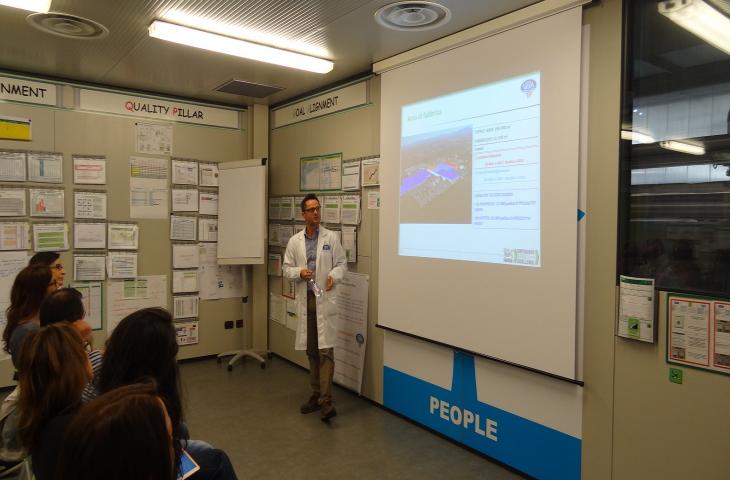From university to being in charge of two factories: Can you tell us about the most important stages in your journey?
After finishing my high school education in a science academy in Italy, I graduated in Economics and Business from the University of Bergamo, where I also had the chance to spend a year in London on the Erasmus scheme. After a year of civil service, I started to send out my CV with a particular focus on marketing, which I had specialised in during my studies. To my great surprise and interest, San Pellegrino called me in 1998, offering some temporary work over the summer and pretty much just for a laugh, I started an internship in logistics, in a warehouse between Bergamo and Milan. There, I started off doing anything and everything: from checking pallets, to receiving the drivers arriving from Sicily to load up with San Pellegrino drinks. In 2000, I was welcomed into the vast Logistics family, which then evolved through planning and became supply chain. In 2007, the company gave me the chance to gain some work experience in Paris, where I was a member of a group of HPL (high performing logistics) advisers: for four years, I supported the company around the world, with the objective of improving processes and helping suppliers develop the logistics concept. After this period, I was offered the position of supply chain manager in the Vittel and Contrex factories in France, where I ran the central logistical planning hub, with its 350 or so personnel. At the end of this placement, Italy called me back to take over the management of the San Giorgio in Bosco and Santo Stefano in Quisquina factories.
What are the main responsibilities of your role?
Being an employer and having all the powers of the firm, there are both privileges and burdens. Being responsible for 260 people at San Giorgio in Bosco, as well as those at the Santo Stefano in Quisquina factory, is certainly demanding, but it brings an enormous sense of satisfaction. Yes, I do have both civil and criminal responsibilities, but the day to day work is also about making sure people feel good and that they succeed in producing the results the company expects. One aspect I particularly enjoy which has come to the fore over the years is personnel management: my duty is to talk to people and try to make the most of their potential.
What advice would you give to youngsters seeking to enter the workplace?
For sure, it is lovely to see some exchange between the insiders and the outside world, like the youngsters visiting from the University of Verona. If we do not make the first move ourselves by opening our doors, it becomes difficult for others to come and find us. To these youngsters I would say, yes, you also need a bit of luck, but you have to have ambition and persistence. If you want to do something, you must try to do it without any hitches. Basically, however, it is about staying yourself, staying grounded at each stage of your career, because everything invested at the beginning will surely bear fruit later on. I see it in my own case: if I had not started on the ground, dusting down pallets, I would probably have lost out later.











